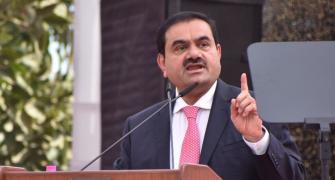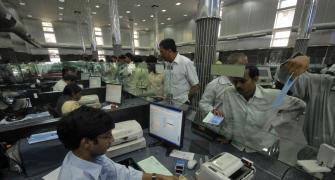 A gamble with fate taken by both current railway minister Mamata Banerjee and her predecessor, Lalu Prasad, has just cost their cash-short charge upwards of Rs 10 crore (Rs 100 million).
A gamble with fate taken by both current railway minister Mamata Banerjee and her predecessor, Lalu Prasad, has just cost their cash-short charge upwards of Rs 10 crore (Rs 100 million).
In 2008-09, when Prasad was minister, the railways stopped renewing their annual passenger insurance contract. In spite of rising incidents of terrorist/insurgency attacks over the past year, Mamata Banerjee, too, did not renew the contract in 2009-10.
Then came the Jnaneswari Express attack by Naxalites on May 28 and the resulting derailment-collision with a goods train, killing 140-plus and injuring more than 200.
If the insurance contracts had been renewed, the charges in the Railway Passenger Insurance Scheme introduced in 1994, of Rs 400,000 in case of death and complete disability, and between Rs 32,000 and Rs 3,60,000 for injuries, depending on severity, would have been borne by the insurance companies.
The Railways will now pay the bill, of at least Rs 10 crore. This is over and above the payment of Rs 500,000 to the next of kin of each of the dead and Rs one lakh for each of the injured that the minister has promised to pay.
The Railway Claims Tribunal administers the Railway Passenger Insurance Scheme to cover incidences of deaths and injuries to bona fide passengers on account of terrorist attacks, bomb blasts or any other "untoward incident", as defined by the Railway Act, 1989.
On the other hand, by not renewing the scheme, the annual saving on premium payment has been around Rs 35 crore, says sources in both the insurance companies and the railways.
The railways, though, are not officially stating this as the reason why they stopped the insurance.
And, "though we don't have an insurer now, passengers travelling with us don't need to worry about compensation in case of accidents. The liability of the Railways is absolute and we will pay the amount through our internal mechanism," says an official.
Till about three years earlier, the state-run United India Insurance had been providing the cover; then a private company did so.
The reason why the insurance contract was not renewed ranged from rising incidents of false claims to the lengthy settlement process through the RCT, says the official. This is partly disputed.
"Earlier, we were the insurers for the passenger insurance scheme of the Railways. The claims were quite high, though not alarming," says G Srinivasan, chairman-cum-managing director, United India Insurance.
Some railway sources said the system of using an insurer had been done away with subsequent to the formation of a committee to examine the arrangement during the Lalu Prasad regime.
"Certain issues were brought to our notice. For instance, there were problems with the reimbursement process, as it took the RCT between three and four years to sort out a claim. As a result, this arrangement was done away with," a source said.
Banerjee had acknowledged in Parliament that incidents of attacks by Naxalites had nearly doubled to 58 in 2009 from 30 in the previous year.
In 2007, as many as 56 such attacks were reported.
"Railways have become a target of Naxals. We have lost Rs 500 crore (Rs 5 billion) because of Naxal bandhs and obstructions," she said. Also going off track has been railways' finances.
The net revenue after dividend fell to Rs 951 crore (Rs 9.51 billion) in 2009-10, against Rs 2,642 crore (Rs 26.42 billion) budgeted in the July 2009 estimates..








